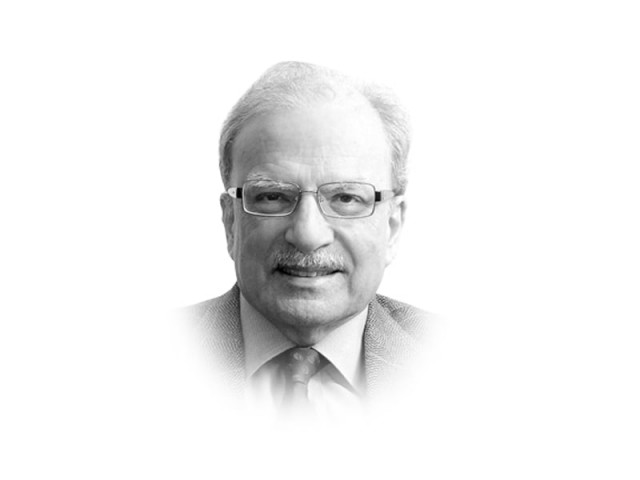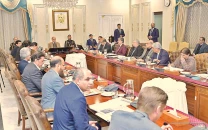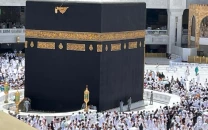The Pakistani ‘state’ under stress — II
Pakistan is too large a country and faced with just too many crises to handle state matters with such casualness.

History is one reason why the confusion about the meaning of the state prevails in Pakistan. Often, those who had become responsible for the state — or had made themselves responsible for it — did what they were not expected to do. They undermined the basic law of the land. On two occasions the constitution was abrogated, in both cases by military leaders who were convinced that their mandate for taking those decisions was implied in the positions they occupied. On a number of other occasions the constitution’s basic structure was seriously compromised. It is happening once again, since, the locus of executive authority rests with the person and in the place where it shouldn’t be under the constitution, as amended recently.
That Pakistan has a long history of deliberately confusing the assignment of responsibility to various actors in the functioning of the state is not good enough reason to continue with this practice. Lack of clarity about the locus of power is particularly troubling at a time when the country is dealing with so many crises at the same time. Pakistan is now in the eye of a perfect storm. As I write this, The Washington Post reports on a series of meetings held between the senior American and Pakistani leaders. US Secretary of State Hillary Clinton, met with Pakistani Foreign Minister Hina Khar in New York; Admiral Mike Mullen, chairman US Joint Chiefs of Staff, met with General Ashfaq Kayani, Chief of Staff of the Pakistan Army in Madrid; and David Petereus, Director of CIA met with Lt. Gen. Ahmed Shuja Pasha, Director of ISI, in Washington. While these meetings were being held, Leon Panetta, the new Secretary of Defence in the Obama administration, issued what the American press called an ultimatum to Pakistan. Islamabad was being asked to move against the Haqqani network operating out of North Waziristan. It was held responsible for the recent attack on the American Embassy in Kabul and possibly also for the assassination of Burhanuddin Rabbani, who was attempting to negotiate with the Taliban on behalf of the government in Kabul and the US. It is clear that Pakistan is now in America’s cross-hairs. Will Washington move against the country, if Islamabad does not, to do its bidding?
It is not clear who has the responsibility of crafting an appropriate Pakistani response to the pressure from the US. Does the responsibility rest with the prime minister and the parliament as it should under the constitution or is the president in charge? The constitution assigns the president a very limited set of responsibilities. If he is calling the shots from where does he draw that authority? Is the military formulating the policy response to the Americans? If so why?
Then there is trouble brewing on the economic front. Pakistan appears to have decided to terminate its relations with the International Monetary Fund. This will not only deprive the country of some $4 billion of additional money which remains undisbursed from the arrangement concluded in 2009. It will seriously limit the country’s access to other sources of official finance. Once again it is not clear who took the decision and for what reasons. Did the cabinet decide to walk out of the arrangement? Was the decision the result of the reading by the politicians in power that they did not have enough clout with the citizenry to do what the Fund wanted Pakistan to achieve: to raise enough resources from within the economy to provide the government the money it needs to fulfil its many basic functions. Whoever took the decision to walk out of the Fund arrangement should have looked at the alternatives that are available for financing the legitimate functions of the government. If the politicians do have some alternatives in mind, what are they and how will they be tapped?
Pakistan is once again dealing with devastating floods caused by rains that were expected. Were preparations made to save the people from being hurt once again after they had suffered so much from the Great Flood of 2010? What were the lessons learned from the government’s handling of the disaster last year and how were these applied for managing similar emergencies?
Have the policymakers given any thought to creating an institutional mechanism for dealing with the type of emergencies and crises the country faces? Most countries have some variant of National Security Councils that pull in various functionaries from different branches of government as emergencies arise. Such an institutional structure exists in countries as diverse as the US and India. In both cases, high quality staff does the background work to facilitate the making of policy. Such an institutional structure was in place when General Pervez Musharraf was the head of the state. It functioned for a brief period when the current rulers came to power. In both cases the councils were not adequately staffed. Why was this mechanism for providing professional backing for serious policymaking done away with? Could it be that the ad hoc way of policymaking suits the temperament of those who deal with the affairs of the state at this time?
Pakistan is too large a country and faced with just too many crises to handle state matters with such casualness. The questions raised here and several other that are also important need to be asked and the policymakers who are determining the future of 180 million people need to provide some convincing answers.
Published in The Express Tribune, September 26th, 2011.


















COMMENTS
Comments are moderated and generally will be posted if they are on-topic and not abusive.
For more information, please see our Comments FAQ